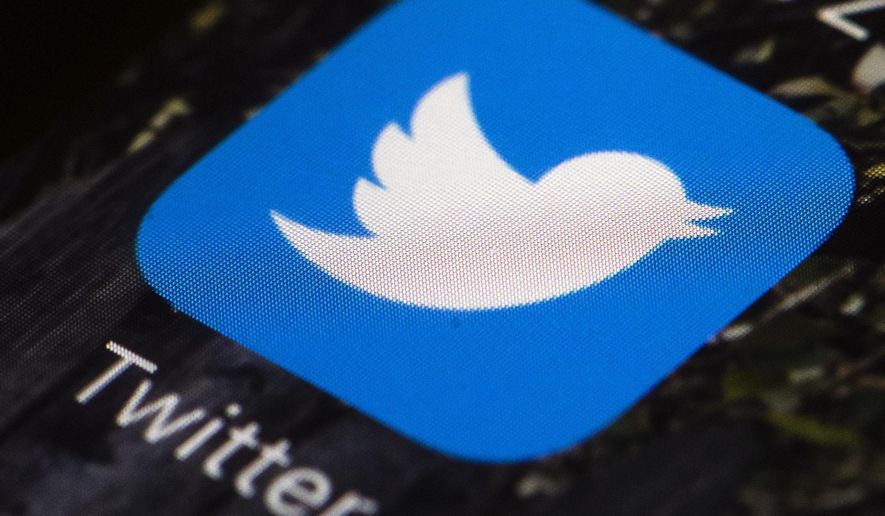The intelligence community once considered investing in Twitter but ultimately decided not to and has since built up an investment portfolio of companies that analyze social media.
The CIA-contracted venture capital fund In-Q-Tel in the last six months has begun working on a new investment specifically targeting speech that is deemed problematic and to identify people who say “unsavory things” on websites such as Twitter, Facebook and Reddit, said In-Q-Tel investor Morgan Mahlock.
“Can’t yet mention the name, but it is able to detect toxic content online,” Ms. Mahlock said in remarks to the University of California, Irvine on Friday. “So what I mean by that is in social media forums, for example on Reddit, or Facebook, or Twitter, it’s able to identify people who are saying unsavory things to others in a nuanced way, understanding the language and the context.”
In-Q-Tel is organized as a nonprofit that does not disclose its entire list of investments despite relying on government funds from the intelligence agencies to foster innovation that meets the federal government’s needs. In-Q-Tel received nearly $490 million in taxpayer funds during a five-year period ending in 2017, which represents more than 98% of its revenue, according to documents filed with the IRS.
The reason the intelligence agencies, which are In-Q-Tel’s customers, want to monitor distasteful speech online is not immediately clear. In-Q-Tel did not identify the company receiving its new investment or its motivation for making the investment, when asked by The Washington Times.
“In-Q-Tel publicly discloses the majority of the companies in which we invest,” said Carrie Sessine, In-Q-Tel spokesperson, in an email. “There will always be companies that are not announced publicly, which is common practice in the investment community.”
David Noever, chief scientist at cybersecurity firm PeopleTec, said the First Amendment can make it “tricky” for the federal government to learn much about detecting toxic content online without having things backfire on the government.
Mr. Noever, who has worked on machine learning and data mining with the Department of Defense and NASA, said detection technology aimed at social media can serve as an “early warning system.”
“On an individual case, though, it’s likely just full of false positives and negatives,” Mr. Noever said in an email. “An example might be: How does one filter all the Broadway theater review sites and act smartly when someone says, ’That opening night really bombed.’It becomes particularly tough in other languages that are even more context-sensitive than English.”
The intelligence community’s interest in Twitter dates to its earliest days. In testimony before the House Permanent Select Committee on Intelligence in February 2020, In-Q-Tel CEO Chris Darby said he met with Twitter’s leadership 12 years ago in a private meeting in San Francisco.
Mr. Darby said the Twitter team showed him a 140-character post from a user saying the person had asparagus for lunch and the In-Q-Tel CEO grew flustered and thought the meeting was a waste of time. Mr. Darby said one of his fellow venture capitalists calmed him down and explained why they needed to learn about Twitter.
“We need to invest not in this company called Twitter, we need to invest in all of the analytic engines that make us understand what’s going on in Twitter,” Mr. Darby testified that his fellow investor told him.
In the ensuing years, In-Q-Tel pursued several companies that study and crunch data available for collection from social media companies such as Twitter, Facebook and Reddit. The intelligence community’s interest in social media came as criminals and terrorists increasingly used social media for recruitment and organizational purposes.
Twitter has recently expressed an interest in acquiring TikTok, the Chinese-owned video social media platform that has run afoul of the Trump administration over national security concerns, according to reports. In-Q-Tel has not publicly shown any interest in TikTok.
In 2012, In-Q-Tel published a list of a handful of companies that it paid to develop social media technologies. Recorded Future, one of the companies receiving In-Q-Tel funding, was developing software to monitor data and predict future events in the financial services, brand management, and competitive intelligence realms.
Twitter declined to comment on whether it had shared data with In-Q-Tel’s portfolio companies and it refused to comment on Mr. Darby’s recollection of his meeting with Twitter.
In-Q-Tel did not answer requests for comment.
• Ryan Lovelace can be reached at rlovelace@washingtontimes.com.




Please read our comment policy before commenting.